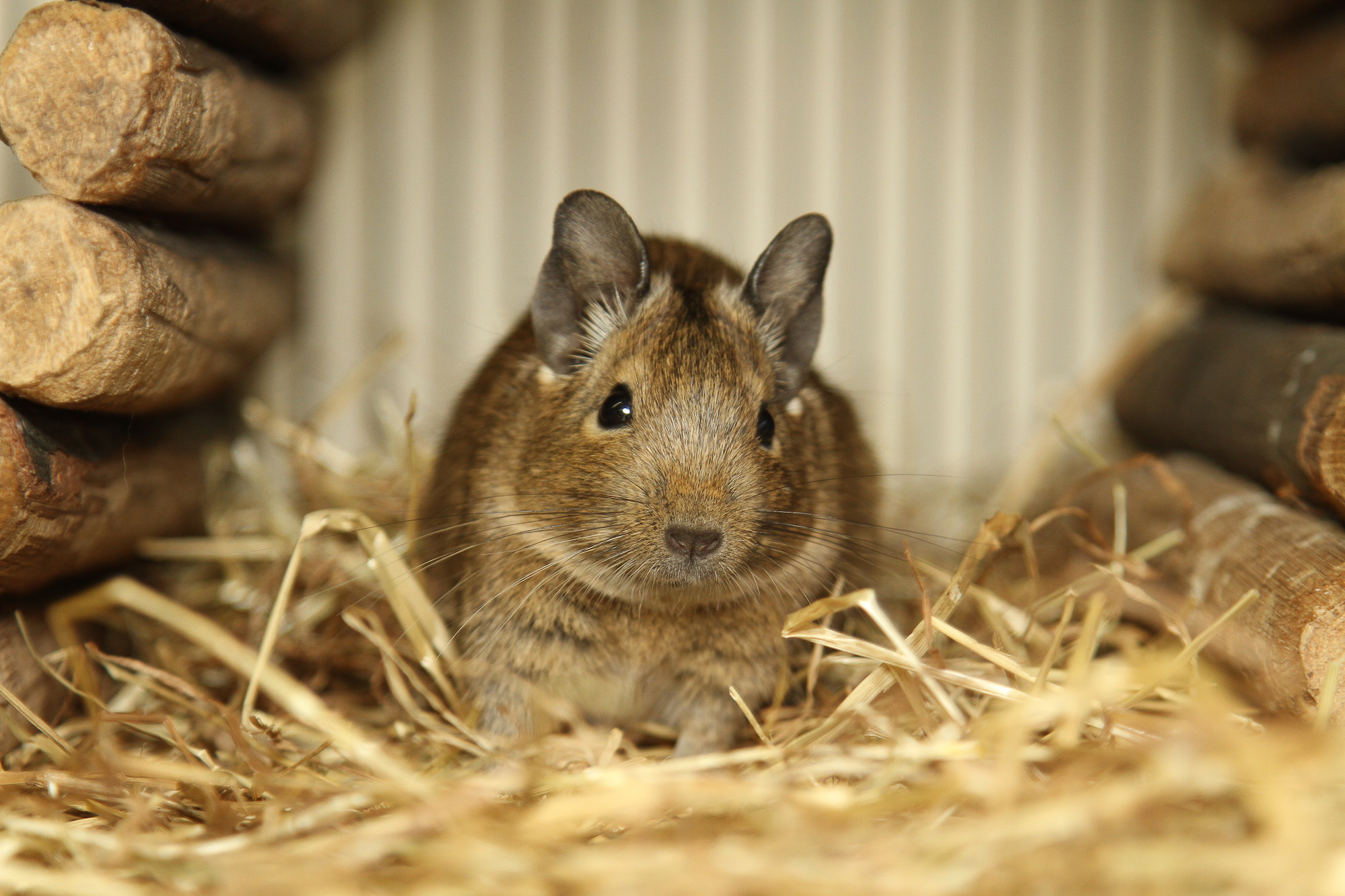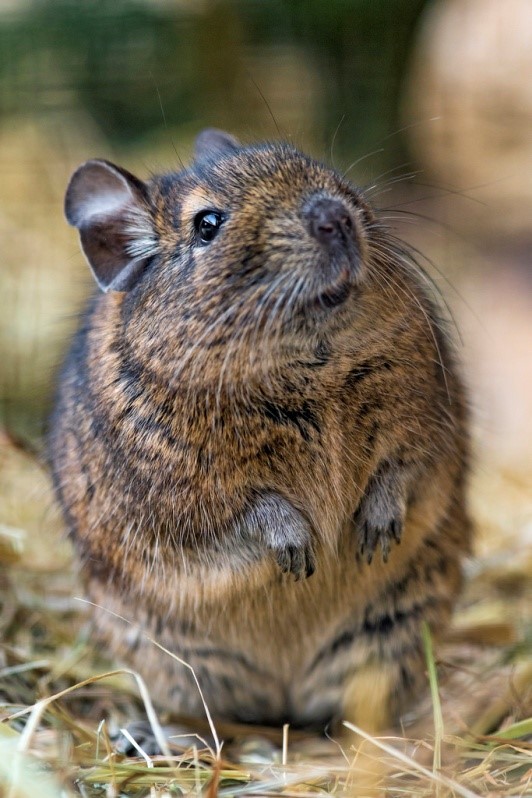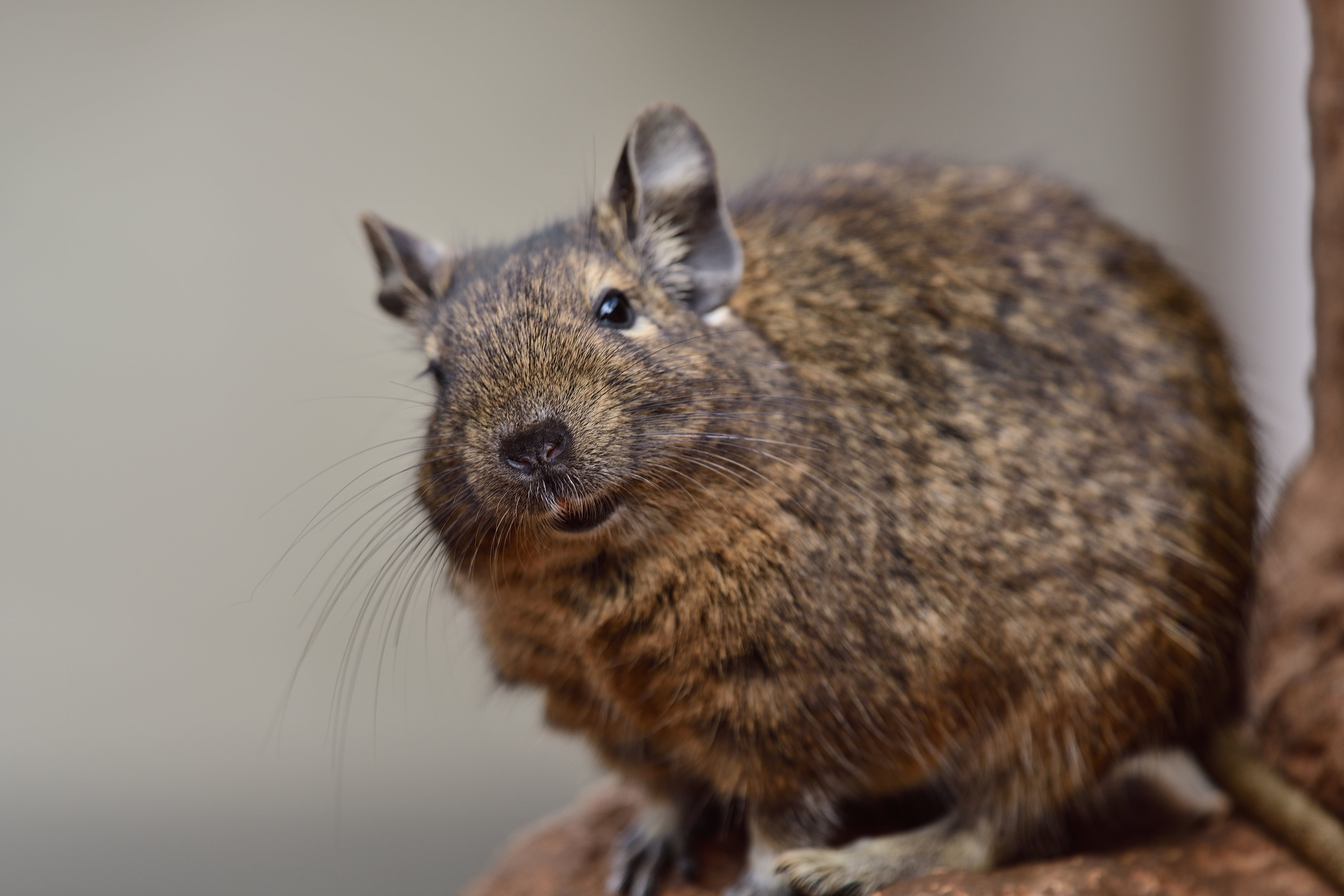Degu Animal
Degu, (genus octodon ), one of four species of ratlike south american rodents found primarily on the lower western slopes of the andes mountains. To be healthy and happy, degus should be kept as pets in pairs or groups.

Degu Smithsonian's National Zoo
Social contacts are crucial for their welfare.

Degu animal. A close relative of the chinchilla, the degu is a gentle little rodent native to the rocky outcrops of the chilean lowland. They are highly social, live in burrows, and have been shown to spontaneously nest communally, where groups of mothers will actually nurse one another's young. Nevertheless, it is not advisable to house degus with other species.
In the wild they live in elaborate burrows amongst the rocks and brush of the west andean slopes. Degus have soft fur, but there are really only a a few degu colors. The degu as a social animal degus really enjoy the company of both humans and fellow degus.
Signs of illness include diarrhea, soft stools, constipation, seizures, weakness, weepy eyes, a change in eating habits, a change in personality, drooling, pawing at the mouth, or leaning the head to one side constantly. A healthy degu’s teeth will be yellow to orange in color, with their cheek teeth resembling a figure eight. The females raise their young in a communal group.
With degus being unable to metabolize sugar, diabetes is a concern. The degu is an easy pet to care increasingly extends as a pet. Females participate in rearing on another's young.
However, the underbelly is a much paler color, usually looking like a creamy yellow. A degu is a rodent that originates from chile, south america. For instance, most people keep degus and chinchillas or guinea pigs in the same cage believing they will get along and.
Before bringing home a degu, make sure you have considered the full. If you ever get too dirty, we can clean with mild soap for babies, clarify and we will remove it with a hairdryer , plus leave it in a dry place so they do not constipe. They are clean animals and they do not need to be brushed or combed ( has short hair ) nor bathe.
In the wild, degus make communal burrows and live together in groups. Groups maintain territories throughout much of the year. Degus are social and tend to live in groups of one to two males and two to five related females.
Yes, degus can live and get along with other pets. They’re used for research in laboratories but are also interesting pets. The common degu ( octodon degus) is a small sized rodent with a similar appearance to the domestic rat ( rattus norvegicus ).
These burrows are often shared by bennett's chinchilla rat (abrocoma bennettii She likes having her tummy tickled :) Refill any low water bottles from.
My pet degu, peach, she is one of 4 that i own. They are brown in color with a somewhat lighter belly. A few reasons why degus are so special.hope you enjoy, the clips and music :
Degu adoption is a wonderful way to provide a degu a second chance and caring environment. Observe animals for signs of disease, illness, or injury; If they are kept as pets, they tend to enjoy contact and affection from their human friends, and can form bonds that make them wonderful pets.
Degu pups are born relatively precocial, fully furred and with eyes open, and. • degus are highly social animals; Degus are native to northern and central chile and can be found living at high elevations (1,200m) in the andes mountain range.
A degu will be designated as a sentinel. • separate hierarchies exist for males and females in each group. Most pets arrive at shelters because the owner had to move, could no longer afford the pet, had a death in the family, or simply gave up the responsibly of being a care taker for a degu.
Degus are available for adoption from rescue facilities where they end up often when frustrated or disappointed owners, who loved the novelty of having a pet degu but who were ignorant about the care these animals require, leave them. Individuals interested acquiring a pet degu should. Several groups form a colony.
Degus are a species of small, diurnal (meaning they awake during the day) rodent endemic to central chile. The degu is a social animal and is active throughout the day, with peaks of activity at twilight periods. It is one of the most common mammals of central chile at elevations up to 1,200 metres (3,900 feet), where it prefers open grassy areas near shrubs, rocks, and stone walls.
The animals will not be euthanized but will undergo a saphenous bleed semiannually. They're also diurnal animals which means they're active during the day and sleep at night. Degus are generally healthy animals, but they can get sick.
Degus also are sold in pet stores in states in which these pets are legal to keep. • in the wild, degus live in groups of 10 to 15 animals of both sexes. The degu is native to central and northern chile, where they live in large groups.
Though the degus will not fight the other animals, they often have different housing and dietary needs.

Choosing The Right Degu Cage Animal Hub

Degu Mr Johnson's Small Animal Food

A Degu's Teeth Should Be Orange
10 important things you should know about degu

Degu.Cute toddler. Degu, Degus, Toddler
Degu Facts Animal Facts Encyclopedia
:max_bytes(150000):strip_icc()/Degu-5387134663_c2f33c5ae4_o-59e187b70d327a001050362d.jpg)
Safe and Toxic Woods for Degus

10 Facts That Make Degus The Coolest Pet Ever!




/95937339-56a2bcc83df78cf772795fd7.jpg)






Post a Comment for "Degu Animal"